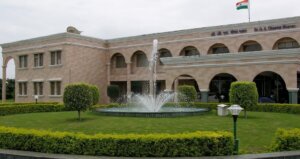Agilent Technologies, a leading provider of analytical laboratory solutions, has recently formed a strategic partnership with ICAR – National Research Centre for Grapes (NRCG).
The partnership aims to collaborate on the development of advanced analytical workflows and tackle critical challenges in the evolving field of food safety protocols.
With India setting to its role as a significant player in global food production and exports, it becomes vital to prioritize the quality of food products and compliance with both domestic and international safety regulations.
The fact that the country stands out as a top producer and exporter of cereals, spices, fruits and vegetables, and seafood further highlights the importance of this requirement.
Agilent and NRCG will combine their strengths to enhance food safety solutions. Agilent’s global expertise in this field will be complemented by NRCG’s extensive experience in developing analytical workflows.
This collaboration aims to accelerate the development of advanced workflows that specifically target PFAS, polar pesticides, antibiotics, and other emerging applications. The ultimate goal is to ensure that Indian food products meet strict regulatory standards.
Dr. Kaushik Banerjee, the director of ICAR-National Research Centre for Grapes, expressed his excitement about the collaboration between ICAR-NRCG and Agilent Technologies. The collaboration aims to enhance the nation’s food safety capabilities sustainably.

In 2012, NRCG introduced a groundbreaking GC-MS or MS-based multi-residue testing procedure for the simultaneous analysis of 375 food contaminants. This procedure utilized an Agilent GC-MS or MS system, which was considered the most comprehensive method for residue monitoring at that time.
Since then, NRCG has made significant progress by developing and implementing various analytical methodologies to benefit stakeholders in the food sector.
This public-private partnership is centered around meeting the increasing need for food analysis in the country. Laboratories that comply with regulatory standards set by FSSAI, APEDA, EIC, and Commodity Boards will benefit greatly from this collaboration.
Looking forward, there are promising opportunities and significant responsibilities on the horizon, he noted.
Date : 18 May 2023 Time : 10 AM to 05 PM Faculty : Asmita Thaokar (FSSAI National Level Resource Person)
Get regular Food Industry updates on WhatsApp group: Joining link
Share this NEWS with all your Food Technologist Friends and colleagues.